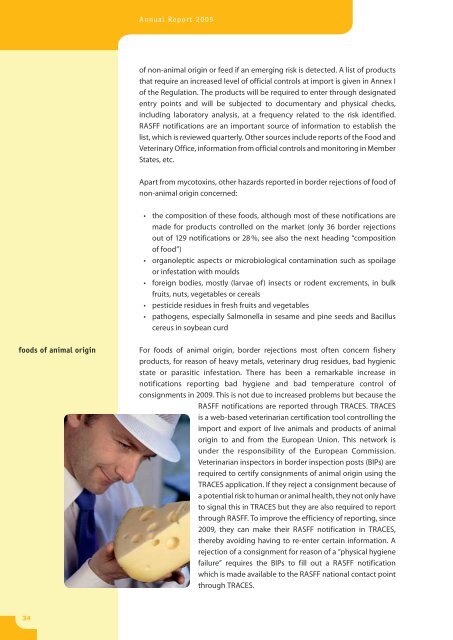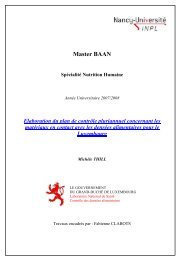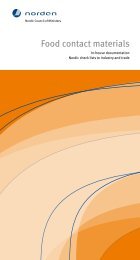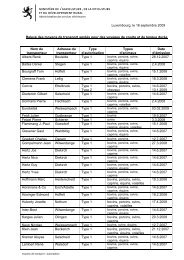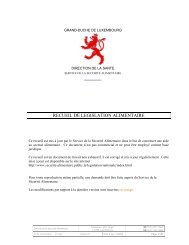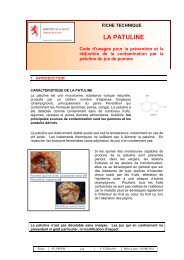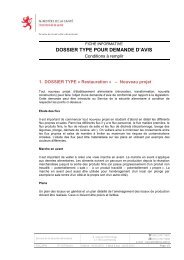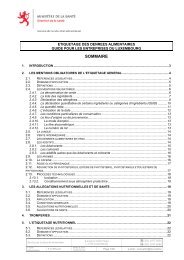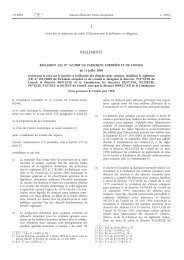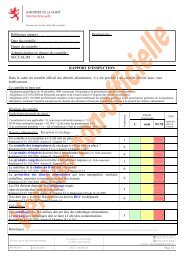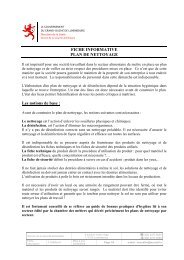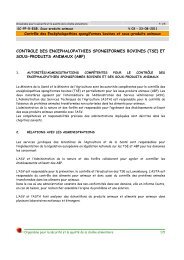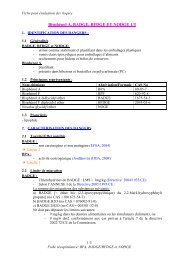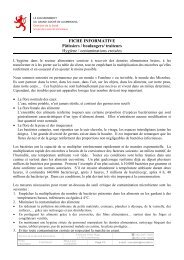(RASFF) Annual Report 2009 - European Commission - Europa
(RASFF) Annual Report 2009 - European Commission - Europa
(RASFF) Annual Report 2009 - European Commission - Europa
Create successful ePaper yourself
Turn your PDF publications into a flip-book with our unique Google optimized e-Paper software.
<strong>Annual</strong> <strong>Report</strong> <strong>2009</strong><br />
of non-animal origin or feed if an emerging risk is detected. A list of products<br />
that require an increased level of official controls at import is given in Annex I<br />
of the Regulation. The products will be required to enter through designated<br />
entry points and will be subjected to documentary and physical checks,<br />
including laboratory analysis, at a frequency related to the risk identified.<br />
<strong>RASFF</strong> notifications are an important source of information to establish the<br />
list, which is reviewed quarterly. Other sources include reports of the Food and<br />
Veterinary Office, information from official controls and monitoring in Member<br />
States, etc.<br />
Apart from mycotoxins, other hazards reported in border rejections of food of<br />
non-animal origin concerned:<br />
• the composition of these foods, although most of these notifications are<br />
made for products controlled on the market (only 36 border rejections<br />
out of 129 notifications or 28 %, see also the next heading “composition<br />
of food”)<br />
• organoleptic aspects or microbiological contamination such as spoilage<br />
or infestation with moulds<br />
• foreign bodies, mostly (larvae of) insects or rodent excrements, in bulk<br />
fruits, nuts, vegetables or cereals<br />
• pesticide residues in fresh fruits and vegetables<br />
• pathogens, especially Salmonella in sesame and pine seeds and Bacillus<br />
cereus in soybean curd<br />
foods of animal origin<br />
For foods of animal origin, border rejections most often concern fishery<br />
products, for reason of heavy metals, veterinary drug residues, bad hygienic<br />
state or parasitic infestation. There has been a remarkable increase in<br />
notifications reporting bad hygiene and bad temperature control of<br />
consignments in <strong>2009</strong>. This is not due to increased problems but because the<br />
<strong>RASFF</strong> notifications are reported through TRACES. TRACES<br />
is a web-based veterinarian certification tool controlling the<br />
import and export of live animals and products of animal<br />
origin to and from the <strong>European</strong> Union. This network is<br />
under the responsibility of the <strong>European</strong> <strong>Commission</strong>.<br />
Veterinarian inspectors in border inspection posts (BIPs) are<br />
required to certify consignments of animal origin using the<br />
TRACES application. If they reject a consignment because of<br />
a potential risk to human or animal health, they not only have<br />
to signal this in TRACES but they are also required to report<br />
through <strong>RASFF</strong>. To improve the efficiency of reporting, since<br />
<strong>2009</strong>, they can make their <strong>RASFF</strong> notification in TRACES,<br />
thereby avoiding having to re-enter certain information. A<br />
rejection of a consignment for reason of a “physical hygiene<br />
failure” requires the BIPs to fill out a <strong>RASFF</strong> notification<br />
which is made available to the <strong>RASFF</strong> national contact point<br />
through TRACES.<br />
34


